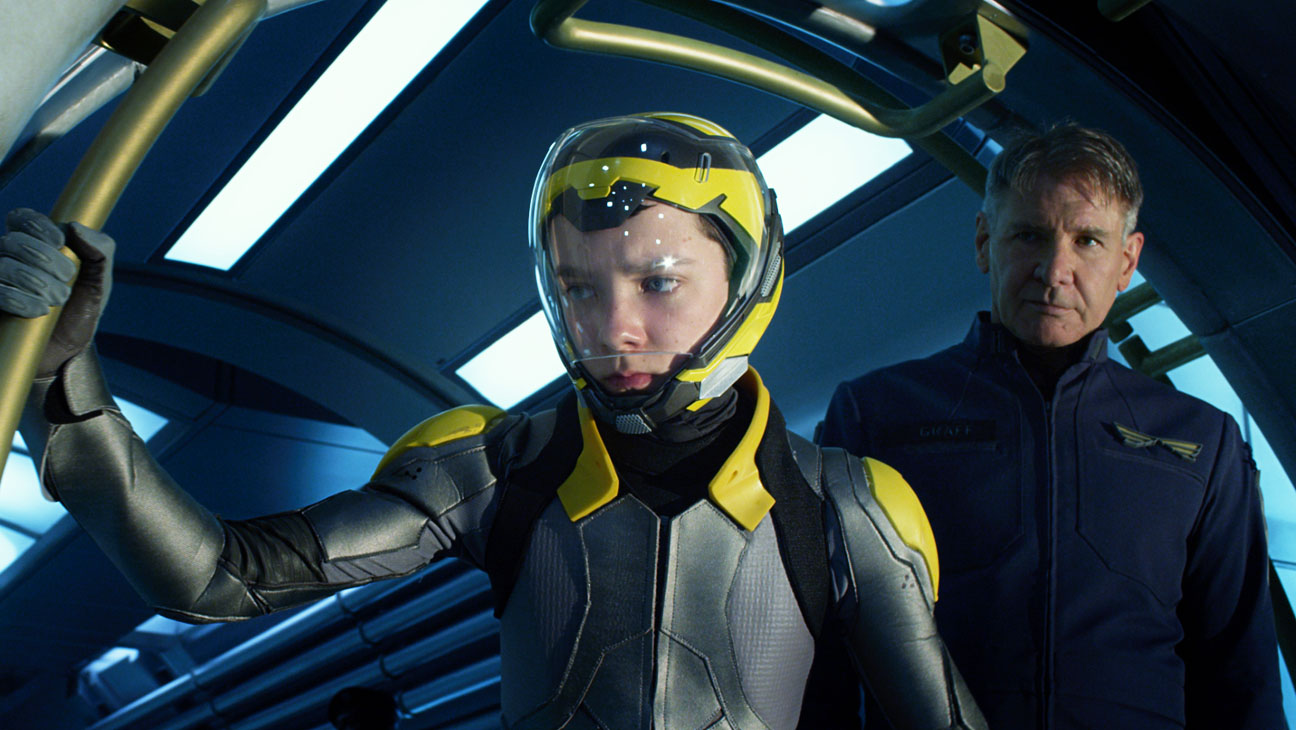For any film fanatic that also happens to be an Orson Scott Card fan, Ender’s Game was the type of film that warranted the hanging a of calendar on the wall and blacking out the days until the film’s November 1st release date. I was excited for months about this film, and yes, I saw it opening night. But after having seen it, I say with dismay that although the admission may not have been a total waste of money, it may have been better spent on a few drinks at a bar, or on a Shake Shack dinner (for the non- drinkers). I was just so unexpectedly un-enthralled that I’m still in shock.
The film opens with Ender Wiggin as his parent’s third child in a world where thirds are not highly regarded, yet a prestigious military school’s administrators monitor Ender’s life via hidden cameras, and through this observation witness the potential genius within Ender. But whatever they notice, it is not shown to the audience.
Nonetheless Ender leaves his family behind to study at this elite training school where plans are secretly being made; Ender will train to become the next great commander of the Earth fleet. While at battle school Ender meets the legendary Mazer Rackham, a famous Maori warrior whom singlehandedly defeated the aliens previously, when they attacked Earth. Rackham’s job now is to mentor Ender, to prepare him for the greatest battle of his life.
Director Hood’s rendition of Ender’s Game does just adequate justice to the original plot of the book. I pined for a grittier, R-rated Prometheus or District 9-ish kind of rendition, and instead I got something related more to Will Smith’s Independence Day.
There were no gaps left in the timeline of the film, gaps necessary to explain how Ender could possibly have become a fleet commander at all. As Director Hood portrays it, the audience sees Ender go from cadet to commander overnight, almost literally. No human past, present, or future, (not even Ender) could pull that off.
Blasé scenes are followed by descriptions of grandeur that made me wonder if I had just watched the same scene as the military commanders. In front of a group of new recruits Ender is praised by Officer Graff (Harrison Ford) for his intelligence, a set-up for later peer torment? But the intelligence Ender shows here is hardly praiseworthy. It’s just a smart-alecky remark about zero gravity. Later, when Ender is confronted by a gang of boys, whom he ends up defeating, the fight is not convincing, yet again, administrators swoon. This type of device, a rather apathetically choreographed scene followed by glorious praise occurs over and over throughout the film. Descriptions of awe are purveyed when no actual awe is warranted.
Asa Butterfield’s unmoving performance is largely responsible for the film’s failure. He is not a convincing Ender, and so all his examples of greatness seem staged. Every time Ender does something “miraculous” and is praised for it, it’s reminiscent of the medieval age; a king’s steward dolloping out praise at every instance to keep his majesty satisfied. Harrison Ford is also pretty terrible. Come to think of it, pretty much all the acting, except Ben Kinglsey’s is bad.
Ender spends significant amounts of time whining about the administration blocking his email account. What does this have to do with the plot? Nothing. Since when do starships send and receive email? They don’t. There’s ansible technology in this world people! (machines capable of instantaneous or superluminal communication) Starships are way past “email.”
Overall, I’d say Ender’s Game was only kind of bad, but it so totally not awesome.
Verdict: 6.5




